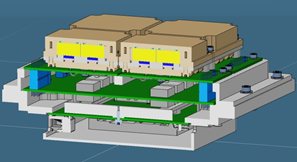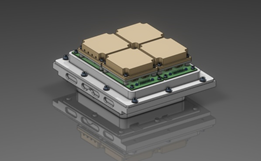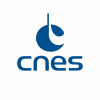

The main goal of the ASTROSIPM R&D program is to design an X-ray/gamma-ray fast spectrometer using SiPM coupled with GAGG scintillators in the [20 keV – 20 MeV] energy range for space applications.
Context
The APC Laboratory has conceived, developed, realized and delivered to CNES a complete space qualified gamma-ray spectrometer, called XGRE, for the CNES TARANIS satellite. TARANIS was the first satellite mission able to measure Transient Luminous Event (TLE) and Terrestrial Gamma-ray Flashes (TGF) emitted during thunderstorms. Unfortunately, in November 2020, the launch of the TARANIS satellite failed.
Soon after, CNES created a taskforce to evaluate the feasibility of a new TARANIS-2 mission. During this study, the XGRE team worked on two scenarios: a "conservative" solution based on the same technology as XGRE and an "innovative" solution based on cutting-edge technologies (new scintillator and photodetector).
While TARANIS-2 was terminated CNES has expressed interest in the innovative solution. A R&D program was then initiated, with a collaboration involving APC, LESIA and CNES, in order to further develop this instrument prototype and demonstrate its feasibility for different space applications, not only dedicated to the TGF studies. This new project is called Flash Gamma-ray Spectrometer (FGS).
Requirements
The FGS prototype developed is based upon new Gadolinium Aluminum Gallium Garnet (GaGG) scintillators and Silicon PhotoMultiplier (SiPM). It is composed of 16 detection units (16 couples of GaGG scintillator and SiPM) readout by the APOCAT fast ASIC developed by the Norwegian IDEAS company. The GaGG scintillators have the advantage to be very fast, luminous and not hydroscopic. The scientific requirements for FGS, mainly derived from the TGF science, are:
- Energy range: 20 keV – 20 MeV
- Dead time (counting rate): up to 1 Mcounts/s/channel
- Geometrical detection surface: 64 cm^2
Staff
- Philippe Laurent (Scientist - Principal Investigator)
- Damien Pailot (Project manager)
- Eric Bréelle (Instrument scientist)
- Melody Pallu (CNES Post-Doc)
- Claude Chapron (Mechanical architecture)
- Kevin Biernacki (Mechanics)
- Stéphane Dheilly (Mechanics)
- Ronan Oger (Electronics)
- Sylvie Blin (Electronics)
- Lydie Pavili (Financial administration)
Interns
- Nicolas Donadieu : Nov 2021 – Jan 2022
- Caroline Patuel : Avr 2022 – Jui 2022
Links
https://taranis.cnes.fr


